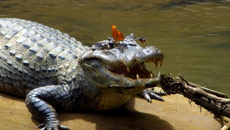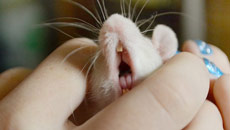Know why do you want to try that chocolate cake or mouth-watering pizza again? Because of the last bite.
Your memory for that last bite of a steak or chocolate cake may be more influential than memory for the first bite in determining when you want to eat it again, according to research.
"Research has told us a lot about factors that influence what foods people want to consume, but less is known about factors that influence when they want to consume a particular food again," explained Emily Garbinsky from Stanford University's graduate school of business.
In one study, the researchers asked 134 undergraduate students to sample three flavours of crackers and then choose one to eat.
They were then given a specific number of crackers and were asked to rate how much they enjoyed each one after they ate it.
The results revealed that students who had eaten the larger portion (15 crackers) reported significantly lower enjoyment at the end than those who had eaten the smaller portion (three crackers).
These findings replicate previous findings on "sensory-specific satiety": Each bit of food is less pleasant than the one before it.
The bigger the portion, the less enjoyment you get out of the last few bites.
More importantly, participants' enjoyment of the last cracker seemed to influence how soon the students wanted to eat the crackers again.
"These results suggest that the most recent tastes experienced in the last few bites of a given food drive our decisions about when to eat that food again," Garbinsky noted.
A glass of juice, bowl of ice cream, or bag of potato chips contains many units of very similar stimuli that are consumed one sip or bite at a time until the entire portion has been eaten.
"So, if we take a lot of bites of the same food in succession, our memory for the last bites may interfere with our ability to accurately remember the initial bites of that food," researchers emphasised in a study published in the journal Psychological Science.





